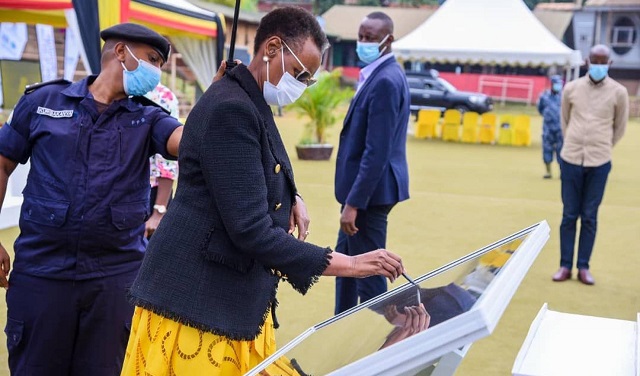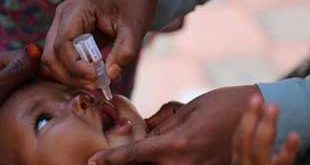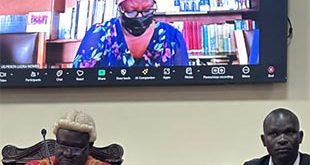
Kampala, Uganda | THE INDEPENDENT | Uganda’s ambitious plan to revamp and transform its education system is facing significant jeopardy following the suspension of crucial funding from international donors in response to the enactment of the Anti-Homosexuality Act.
The law has drawn widespread criticism from human rights advocates and global organizations. The Ministry of Education’s flagship project, valued at 840 billion Shillings, was designed to revitalize the education system and enhance access to quality education for all students.
This initiative sought to tackle essential issues, including among others infrastructure improvements, teacher training, Increasing capitation grants, educational resources, and school feeding programs. Reports indicate that Uganda was expecting significant funding from the Global Partnership for Education (GPE) to support the initiative.
According to documents seen by Uganda Radio Network, the ministry was poised to receive grants from three interconnected projects with the World Bank as the grant agent. These included a System Transformation Grant of approximately USD 162.5 million, a System Capacity Grant of USD 3.8 million, and a Multiplier Grant close to USD 50 million.
Together, the funds were designated to support pre-primary, primary, and secondary education, focusing on improving readiness to learn, enhancing literacy and numeracy skills, and promoting equitable access to secondary and higher education.
A 2024 September report released by GPE shows that although the GPE Board had approved the strategic parameters and Uganda was made eligible to receive funding, the process has since suffered following concerns relating to the Anti- Homosexuality Act, and ultimately funding hasn’t been granted to date.
“System Transformation Grant… Not approved – processed paused,” reads the report while giving an overview of the Status of GPE grants. The report adds that the process had reached the final stage of examination of the application by the time of the funding freeze. The report also noted that the $50 million Multiplier Grant was put on hold, and worse still the fact that funding for this specific component of the grant has now been exhausted.
According to the timeline provided in the report, Uganda began pursuing the grant in October 2021, submitted an Enabling Factors Analysis in December 2021, and the Independent Technical Advisory Panel completed their assessment by February 2022. Following several additional steps, the GPE Board approved the strategic parameters in September 2022.
In the aftermath of COVID-19, the Ministry of Education was promoting this project as a potential game changer. At that time urn had an interview with, Dr. Jane Egau, the undersecretary at the ministry, who highlighted that previous efforts to cause change in the sector have often been fragmented, addressing symptoms rather than the underlying issues in the education sector.
“Securing this grant will enable us to take a comprehensive approach to tackle critical barriers to equitable learning and resolve the bottlenecks affecting the system,” she said in hope. But this hope is currently on pause. The proposed project is aimed at among other things, enhancing infrastructure, equipping schools, increasing capitation, and revamping curriculum and instructional materials. It also sought to rejuvenate the inspection directorate and recruit new teachers to improve the teacher-learner ratio, among other vital enhancements.
Not Yet Given Up
Information from the Ministry of Education indicates that the ministry has not abandoned hopes for this funding, with ongoing discussions involving various stakeholders. Among those engaged in these talks is UNICEF, which serves as the coordinator for GPE in Uganda.
Our reporter has also learned that this issue was also tackled during a recent meeting between the education minister Janet Kataha Museveni and the outgoing UNICEF country representative, Dr. Munir Safieldin.
Education sector and foreign funding
In recent years, the Ministry of Education and Sports has embarked on a series of ambitious reforms aimed at enhancing the nation’s educational landscape. However, with spending in the sector remaining critically low, reliance on grants and loans from multilateral organizations has become essential for progress.
The development partners’ funds (in grants and loans) have been pivotal in developing policies and executing significant infrastructure projects, including the establishment of Technical and Vocational Education and Training (TVET) institutions and the expansion of seed schools.
The Global Partnership for Education alone has since 2011, provided a total of $116,249,666 to the education sector in Uganda in grants. This support includes two Education Sector Plan Development Grants in 2013 and 2018, an Education Sector Program Implementation Grant in 2014, and two Program Development Grants in 2013 and 2022.
Notably, the 2014 Education Sector Program Implementation Grant allocated $100 million to the Ugandan education sector, making it one of the largest grants awarded by GPE. Additionally, Uganda received a COVID-19 accelerated funding grant in 2020.
Patrick Kaboyo, the Executive Director of the Education Advocacy Network, said that it is crucial for the government to prioritize education funding so that this vital sector is not dependent on the mercy of donors.
Kaboyo highlights that public funding for education has been declining over the years. For example, government expenditure on education as a percentage of total government spending (excluding debt service) decreased from 13.72% in 2020 to 11.61% in 2021.
In the current financial year 2024/2025, the education sector received an allocation of Shillings 5.85 trillion, accounting for 8 percent of the total budget—a 5.2 percent increase from last year’s allocation of Shillings 5.56 trillion. However, experts argue that to achieve the desired standards in education, the country should invest at least 20 percent of its budget in this critical area.
******
URN
 The Independent Uganda: You get the Truth we Pay the Price
The Independent Uganda: You get the Truth we Pay the Price


